Why do Buhari, Dos Santos and Mugabe go to hospital abroad?
- Published
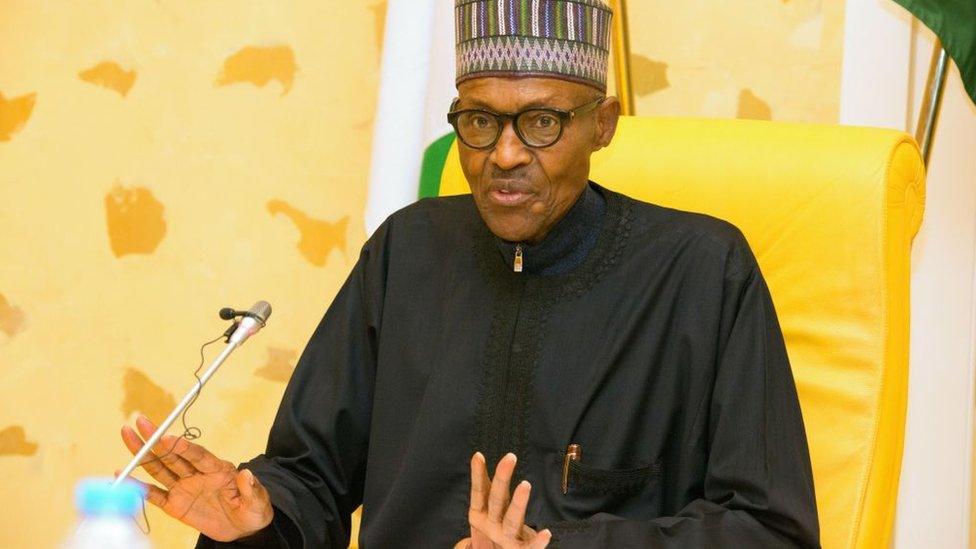
Nigeria's President Muhammadu Buhari has been in London for medical treatment since May
The presidents of Nigeria, Angola, Zimbabwe, Benin and Algeria all have something in common - an apparent lack of faith in the health systems at home.
In terms of time spent abroad getting medical help, Nigeria's President Muhammadu Buhari, 74, is the first among equals, but in the past year all these heads of state have travelled overseas for health reasons.
In many cases they are leaving behind poorly funded health services, which most of their citizens have to rely on.
In 2010, the average amount spent on health in African countries per person was $135 (£100) compared to $3,150 in high-income countries, the UN's World Health Organization, external said.
In Zimbabwe, for example, state-run hospitals and clinics often run out of basic medicines like painkillers and antibiotics, according to health watchdog Citizens Health Watch, external.
It says that the public health care system "continues to deteriorate at alarming levels" with lack of money being the main problem.
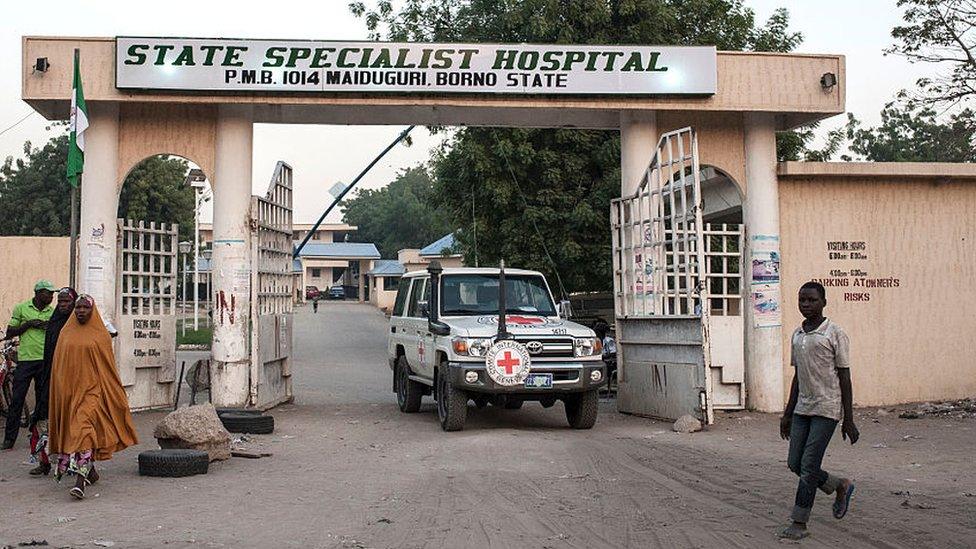
Publicly funded Nigerian hospitals are seen as lacking resources and not offering the best care
As for Nigeria, the public health system is "terrible" because of poor funding, says BBC Abuja editor Naziru Mikailu.
A health insurance scheme for government workers and some private employees has given some people access to private medicine, but most people have to rely on government-funded services.
In both countries, good private healthcare is available to those with money but in some cases there is a feeling that things are better abroad.
The Nigerian president has spent more than four months in London this year getting treatment for an undisclosed illness, causing considerable disquiet at home. Unlike one of his predecessors, Umaru Musa Yar'Adua who went to Saudi Arabia to see a doctor, Mr Buhari did leave his deputy in charge, but this has not dampened the criticism.

Buhari's unhealthy start to 2017
19 January: Leaves for UK on "medical vacation"
5 February: Asks parliament to extend medical leave
10 March: Returns home but does not resume work immediately
7 May: Travels to UK for further treatment
6 June: Aisha Buhari says his is "recuperating fast"

Zimbabwe's President Robert Mugabe, in power since 1980, has also been criticised by his political opponents for running the country "from his hospital bed" after his third medical trip to Singapore this year.
The Angolan government revealed in May that Jose Eduardo dos Santos, who has been president for the last 38 years, had travelled to Spain for health reasons. But as in the Nigerian case, the government was not forthcoming about the problem.
Evaristo Da Luz, spokesperson for the opposition Casa-CE, said that the trip "proves the incompetence of his government in place for four decades and shows the precarious nature of the health service".
'Very, very black'
The ill-health of Algeria's President Abdelaziz Bouteflika, 80, has been known for a long time.
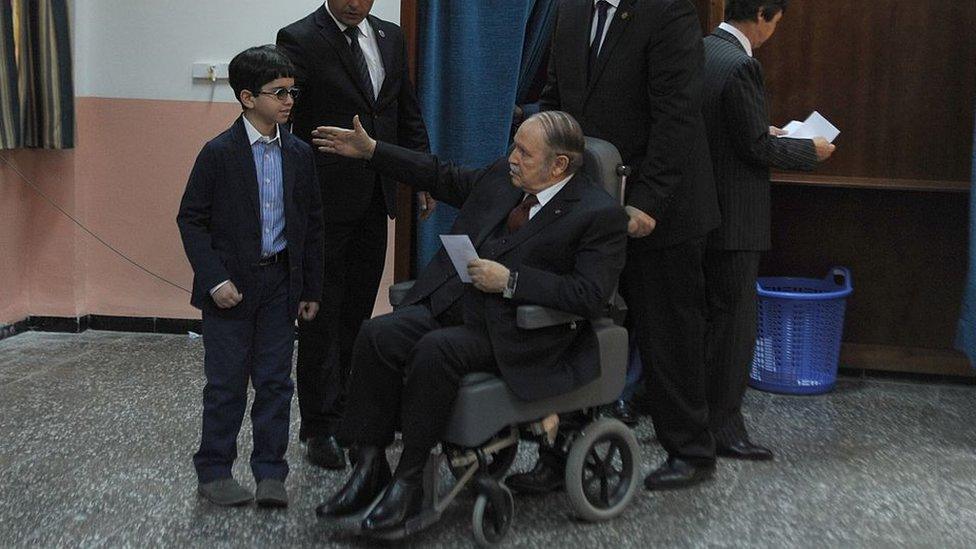
Algerian President Abdelaziz Bouteflika had a stroke in 2013
He suffered a stroke in 2013, was seen going to vote in a wheelchair in 2014 and later in the year travelled to a hospital in France. He was back there last November for one of what the government calls "periodic" medical checks, the AFP news agency reports.
The Benin government has been more forthcoming about the reason for the relatively youthful President Patrice Talon, 59, to travel to France in June. He went for two operations, one on his prostate and one on his digestive system, the government said.
But what is the attraction of seeking medical attention elsewhere?
Unsurprisingly, no presidential spokesman has come out to say that it is because the health service in general is better overseas.
Mr Mugabe's spokesman, though, was sensitive to criticism about his boss's frequent trips to Singapore, insisting in May that he was not turning his back on Zimbabwean medical help.
George Charamba was quoted by the state-run Herald newspaper as saying that the president's doctor "is not only Zimbabwean, he is actually black… He is very, very, very black".
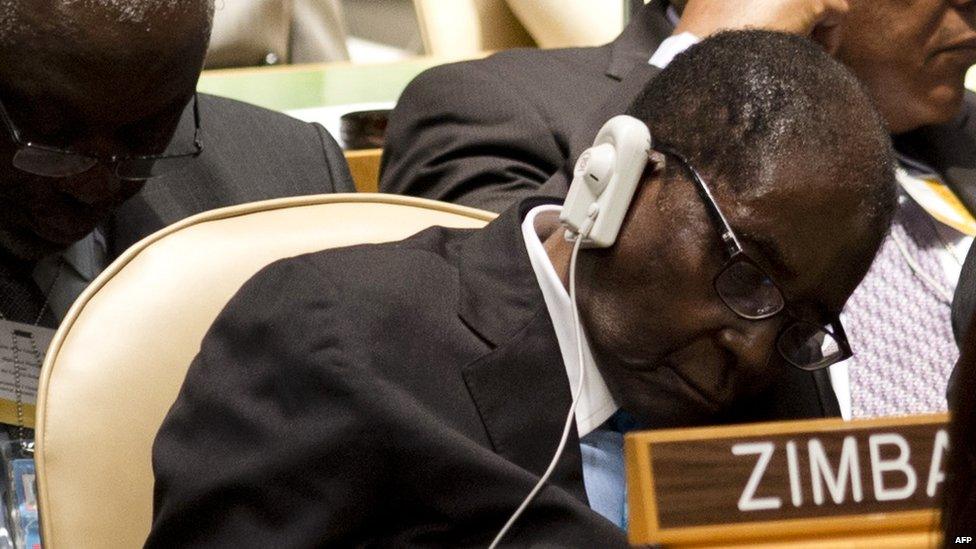
President Robert Mugabe has to rest his eyes because of his medical condition - he is not sleeping
The only issue was that the problem Mr Mugabe had with his eyes could only be dealt with outside Zimbabwe, as it had to do with "the level of sophistication of medical skills".
It was this medical problem that meant Mr Mugabe had to sometimes rest his eyes during meetings, giving the impression that he was sleeping, the spokesman said.
The issue with these trips abroad is not only the implied criticism of the medics at home, but that they also serve to undermine the health system, leading Nigerian doctor Osahon Enabulele argues.
He calls the phenomenon "medical tourism" and says that the example set by political leaders costs countries millions of dollars.
In 2013 he estimated that Nigerians were spending $1bn (£770m) abroad on medical treatment and reckons that figure could have doubled by now.
By comparison, the federal government's health budget, external for 2016 came to $800m.
Dr Enabulele, who is vice-president of the Commonwealth Medical Association, says that the money taken out of Nigeria could be invested in the health system at home.
"The whole ambition to have state-of-the-art facilities will remain a mirage if people keep going abroad for medical reasons."
Vicious cycle
On top of that, he says, top Nigerian doctors are then enticed abroad looking for the best conditions, exacerbating the situation.
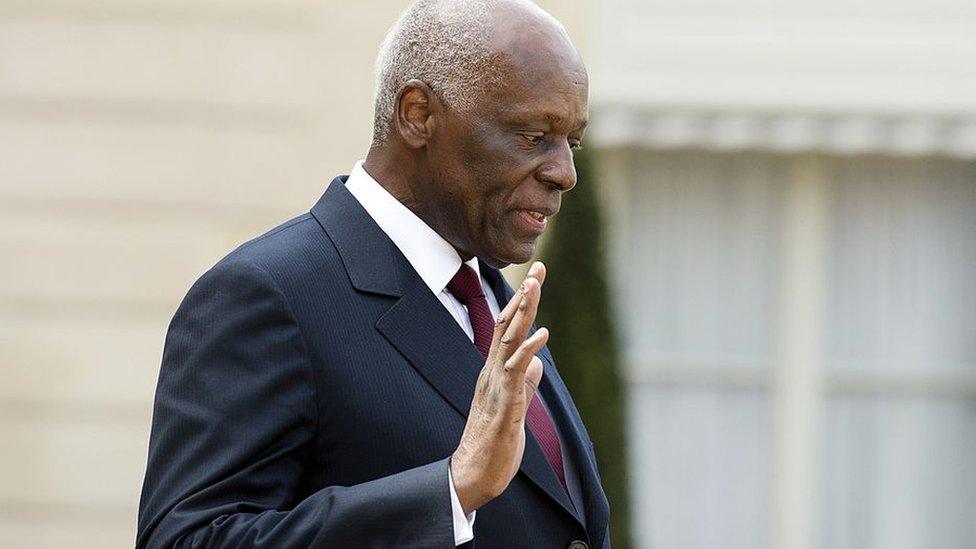
Angola's President Jose Eduardo Dos Santos has been criticised for going abroad for treatment
Dr Enabulele adds that while he wishes the president well, he thinks that the treatment he needs could be found at home.
Looking at the big picture, underfunding of health does seem to be a problem.
Also, political leaders may not have the incentive to improve health services if they themselves can afford to go elsewhere.
Perhaps they could take the example of Sudan President Omar al-Bashir.
In January, he had what the official news agency described as "an exploratory cardiac catheterisation" at a hospital in the capital, Khartoum.
It was, however, a private hospital, not a state one.
- Published15 November 2014
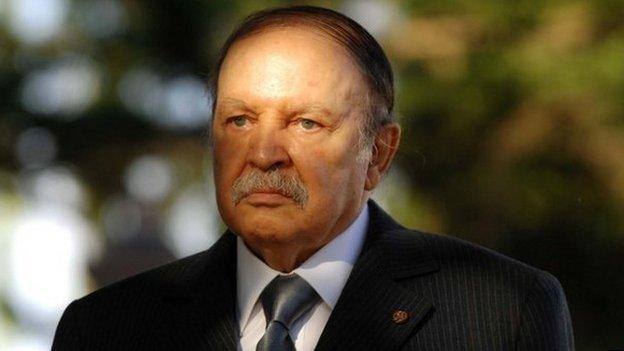
- Published11 May 2017
